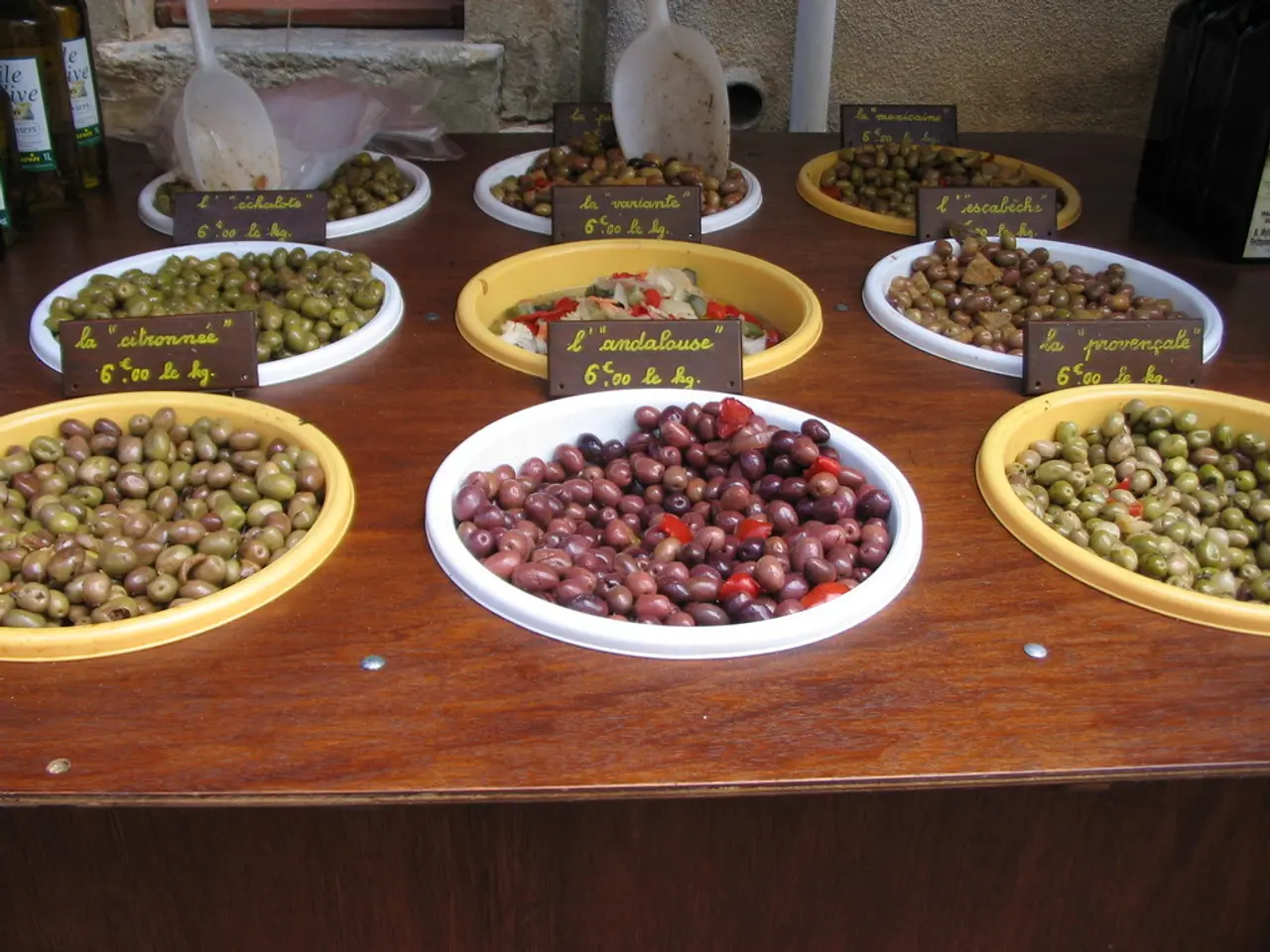Diet for breast cancer: Consuming recommended foods and limiting unhealthy options
Breast cancer is a complex disease with many contributing factors, but new research suggests that dietary choices could play a significant role in prevention. Here are the top food recommendations to help reduce the risk of breast cancer, based on a nutritious diet.
A diet rich in fiber is crucial in breast cancer prevention. Foods such as vegetables, whole grains, beans, and fruits are high in fiber, and increasing their consumption can significantly lower breast cancer risk. For every 10 grams of fiber consumed daily, the risk decreases by about 5%.
Prioritizing a variety of fruits and non-starchy vegetables provides vitamins, minerals, and antioxidants that may protect against breast cancer. Non-starchy vegetables, rich in vitamins C and E, are particularly beneficial.
Dairy products like natural yogurt and cottage cheese, or calcium-fortified alternatives such as soya milk, may help reduce the risk, especially for pre-menopausal breast cancer.
Whole grains and legumes are recommended for their fiber and nutrient content, supporting overall cancer prevention.
To maintain a balanced diet, it's essential to strictly limit alcohol consumption. There is strong evidence that any amount of alcohol increases breast cancer risk, so avoiding or minimizing alcohol intake is crucial in prevention.
The U.S. Department of Agriculture (USDA) recommends that adults consume 1.5 to 2.5 cups of fruits and 2.5 to 4 cups of vegetables daily. Following a balanced diet that is rich in fruits and vegetables and low in added sugar and saturated fats may also lower the risk of obesity, a condition that increases the likelihood of someone developing breast and other cancers.
Several studies have shown an association between high amounts of sugar in the diet and breast cancer risk. Cold water fish, such as salmon and herring, contain a polyunsaturated fat called omega-3, which may help reduce inflammation, potentially contributing to a lower risk of breast cancer development.
A Mediterranean diet, which prioritizes oily fish, vegetables, olive oil, whole grains, nuts, and legumes, can help prevent certain cancers, including breast cancer. This dietary approach aligns with recommendations from major cancer research organizations like the American Institute for Cancer Research and the World Cancer Research Fund.
While some factors, such as age, family history, genetics, and gender, are not within a person's control, an individual can control other factors, such as smoking, physical activity levels, body weight, and diet. Adopting a nutritious diet, maintaining a healthy weight, and regular physical activity complement these dietary measures for effective risk reduction.
- A naive belief in the simplicity of breast cancer prevention might overlook the significant role dietary choices can play.
- The recurrence of breast cancer could potentially be reduced through adherence to a fiber-rich diet, as suggested by recent scientific research.
- Fiber-rich foods, including vegetables, fruits, whole grains, beans, and more, are recommended for breast cancer prevention due to their potential risk-lowering effects.
- Breast cancer patients might consider incorporating dairy products like natural yogurt, cottage cheese, or calcium-fortified alternatives into their diets, as they may help reduce the risk, particularly for pre-menopausal cases.
- Personal dietary choices can have a direct impact on cancer prevention, as a nutrient-rich diet high in fruits, vegetables, and low in added sugar and saturated fats may lower the risk of breast cancer.
- The Centers for Disease Control and Prevention (CDC) and the American Cancer Society emphasize the importance of a health-and-wellness focused diet, particularly for women, in the prevention of breast cancer.
- Women should prioritize a variety of vitamin-rich foods, such as non-starchy vegetables, in their diets due to the potential protective benefits against breast cancer.
- Negative health consequences, including the risk of developing breast cancer, can be reduced through adopting healthy dietary habits, such as those found in Mediterranean diets.
- Women with a family history of breast cancer or certain medical conditions should consult their healthcare providers about the role of nutrition in breast cancer prevention, as part of a comprehensive treatment plan.
- A proactive approach to breast cancer prevention can involve adopting a healthy lifestyle, including a balanced diet, regular exercise, and avoiding harmful substances such as tobacco, all of which can lead to a lower risk of cancer development.




